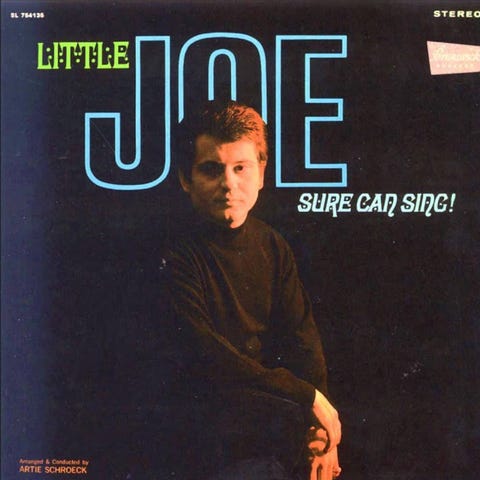A star turn by Carrie Compere buoys this overburdened bio-play of music legend Sister Rosetta TharpeBY: GEMMA WILSON | Updated: November 29, 2019 FacebookTwitterPinterestShare
Carrie Compere’s voice is enough to make you a believer, which would make her character in Shout Sister Shout!, Sister Rosetta Tharpe, very happy. The new Tharpe bio-play by Cheryl L. West, co-created with director Randy Johnson and now running at Seattle Rep, traces the arc of this musical visionary, from her days as a teenager finding her voice in church, to her death as “the godmother of rock ‘n’ roll” in 1973. In between, Tharpe and her electric guitar pioneered the blend of gospel and blues, sacred and secular, that would become the foundation of rock music.
Inspired by the 2007 Tharpe biography of the same name by Gayle F. Wald, Shout Sister Shout! covers, by necessity, a staggering amount of ground. There’s Tharpe, 18 years old, singing with her mother, evangelist Katie Bell Nubin (the equally golden-voiced Carol Dennis), then marrying a Reverend who stifled her gifts. Tharpe, free from her marriage, playing major night spots like the Cotton Club. Touring the country, releasing record after hit record, playing Carnegie Hall. Partnering with singer Marie Knight, suffering in the wake of losing that partnership. Even deciding which plot points from the play to mention here feels like both too much and too little, a stone skipping over the surface of a life but never diving under the surface—too much about what she did, too little about who she was.
It’s no surprise that the music is the real star of this show, each of the 20-some songs a bundle of beautiful energy that got the Rep’s opening night audience talking back and clapping along in a way rarely seen at a formal regional theater. Compere, with a voice that both relaxes you into your seat and launches you out of it, leads the cast of phenomenal singers, backed by a top-tier, on-stage band (though they’re mostly hidden behind a floor-to-flies screen of what look like 3D-printed white guitars, the stage design by GW Skip Mercier mostly neutral to receive Robert Wierzel’s lighting design and Kwame Braun’s projections, a clever narrative efficiency measure).
It’s astonishing to realize how big Tharpe was at the height of her fame in the ‘30s and ‘40s, and how little remembered, how her innovations—even some of her songs—are attributed by history to men like Elvis and Jerry Lee Lewis. Twenty-five thousand people attended her 1951 third wedding-slash-concert at a baseball stadium in Washington D.C., a promotional stunt to boost her sagging career. Ebony magazine covered it.
Compere’s performance is luminous, and this story is one we should all know in our music-loving, American bones. But West’s script repeatedly falls into the eternal trap of bio-plays: clunky exposition, shoehorned in instead of integrated via natural language or design elements. Bio-pics have the visual advantage of scene cuts that easily skip viewers around in time, period clothes, cars, etc. immediately signal when and where we are. On stage, it’s trickier to keep your audience rooted in time and space, but West and Johnson don’t seem to trust audiences to fill in easy logical gaps, to put together context clues about time passing or what a relationship between two characters might be. That leads to some heavy-handed information-delivery: “God brought me through a lot in these 58 years,” Rosetta tells her husband, near the end of her life. “And you been with me, Russell, the last 22.”
For me, I’d choose emotion over exposition every time. Choosing which moments to speed through and which to savor, not to mention which to include at all, is the battle here. Tharpe’s speculated relationship with Marie Knight was barely investigated; the unspeakable tragedy Marie suffered zipped through so quickly it barely registered.
Such a broad script sets actors up for overbroad performances and a lot of capital-A Acting, though not everyone is tripped up—ensemble members Alexis Tidwell and Christin Byrdsong, in particular, found lovely, subtle human moments in their various roles.
The most meaningful moments in Shout! are the ones that tell us a lot without telling us anything directly. When Rosetta, famous and beloved, offers a song at a church, not only is that offer rebuffed, the pastor then delivers to the congregation: “Scripture says worship and praise him in song … cause He is worthy. Nowhere does it say sing jump blues ‘cause you the one tryin’ to be worthy, glorifying yourself instead of the lord on high…”
It’s heartbreaking. It’s infuriating. It’s a lifetime of conflict between the rigid morality of Tharpe’s religious upbringing and the spiritual purity of her creative joy, and it tells us much more about her than the facts and figures that make up her obituary.
Shout Sister Shout! runs through December 22 at Seattle Repertory Theatre.







